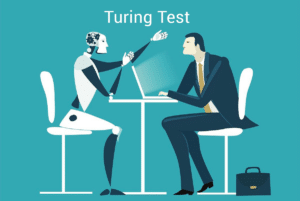Contents
Australia looking to regulate AI
The leaps in progress that have been made in AI over the past year or two have caused plenty of discussion, and it has not all been of a tech nature. Indeed, many of the concerns raised have been more philosophical in nature, and even Elon Musk has been weighing in with his own doomsday predictions – while launching another AI startup of his own.
Debate and philosophical discussions are one thing, but in the Land Down Under, things are taking a further step. A government consultation paper has raised a number of concerns, most specifically that AI’s current state of accelerated development could bring unacceptable risks if it continues unregulated.
First casinos, then crypto – now AI?
Australia is one of the global hotspots for digital innovation. Tech is now one of the nation’s top three contributors to GDP and Sydney and Melbourne, in particular, are home to some of the most forward-thinking tech companies in the world.
Having said that, from a regulatory perspective, Australia tends to take a more cautious and conservative approach than many nations. The most glaring example of this is in the online casino sector. If you click here you can see just a few of the dozens of online casino platforms that are created for the Australian market. Yet regulators are still battling against the tide and have been for years.
More recently, a consultation on crypto has been looking at everything from use cases to tax implications. Australia is likely to be a front-runner in developing a robust regulatory system for crypto, and in the meantime, the nation’s banks are taking an extremely risk-averse approach to decentralized digital currency.
Now, it looks like AI will be joining the list of technology areas under close scrutiny and potential limitation and regulation. The two questions that spring to mind are whether it is too late and if not, what benefits or risks such regulation might bring.
What are the Australian government’s concerns?
Ed Husic is Minister for Industry and Science. He is behind the consultation paper and said that people want reassurance that AI technology and its potential risks “have been thought through and responded to” in a way that can provide reassurance.
He referred specifically to generative AI tools like ChatGPT, which have surged in popularity and usage over recent months, and said Australia should consider placing a ban on what he called “high-risk uses” such as algorithmic bias and deepfakes.
So far, incidences have been largely innocent, and at worst, mischievous. The now famous image of the Pope wearing a puffer jacket is one of the most widely shared examples, along with the fake images of former President Trump in a fracas with police.
There is also concern over what is described as “hallucinations”. These stem from AI’s irritating and still not fully understood habit of citing quotes and even scientific sources that do not exist.
Mr. Husic said the objective is to create “modern laws for modern technology.”
Has the horse bolted?
We earlier wondered whether arresting AI’s development is even possible now. Sure, Australia could pull the plug and order a six-month moratorium while the government carries out its consultation. But what would that achieve in today’s interconnected world? Would the US pause all research in an act of global solidarity?
Possibly it would, in view of the warnings delivered by the likes of Elon Musk and Steve Wozniak in the open letter written earlier this year. Except…
The USA and China are in fierce competition across numerous areas, technological, industrial, and economic. China is already likely to be ahead of the West in AI development due to the easy access to citizen data in Beijing.
Conceptually, regulation makes a lot of sense and there is no downside. But in the real world, it could be that the AI genie is already out of the bottle and there is neither the will nor the appetite to put it back in.









